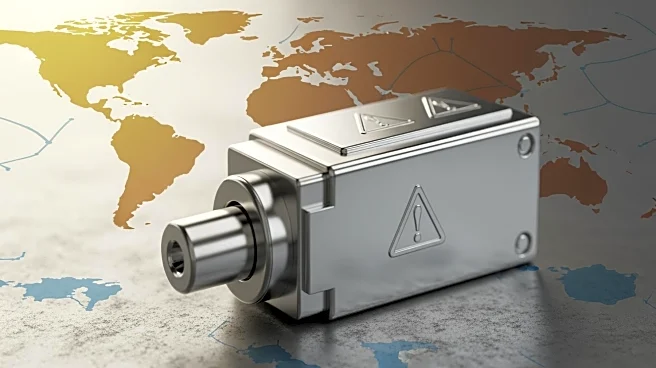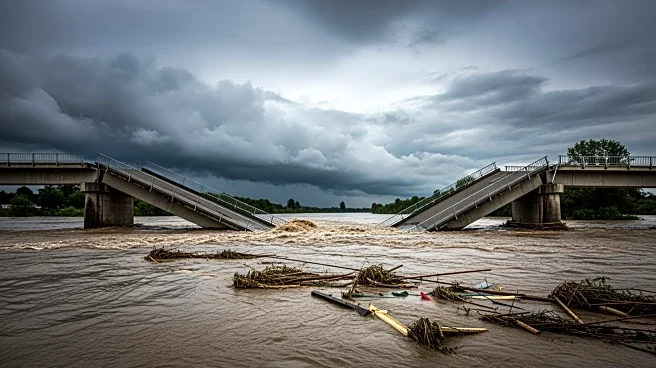What's Happening?
The United Nations Climate Change Conference (COP30) in Brazil has brought together faith advocates for a Talanoa dialogue, a structured conversation aimed at addressing climate change through storytelling and empathy. Texas Impact/Texas Interfaith Power
& Light is actively participating by sending video dispatches from the conference. The Talanoa dialogue, held at the Lutheran Church of Belém, involved participants from various faiths, indigenous peoples, and faith leaders. The discussions focused on the contributions of indigenous peoples to environmental justice and the need for a spiritual change in addressing climate issues. Participants shared personal stories and identified common goals, emphasizing the importance of community-mindedness and collective action.
Why It's Important?
The Talanoa dialogue at COP30 highlights the critical role of faith communities and indigenous peoples in the global response to climate change. By fostering empathy and understanding, these dialogues can lead to more inclusive and effective strategies for environmental justice. The emphasis on spiritual change and community action challenges the prevalent consumerism and individualism in the U.S., advocating for sacrifices for the greater good. This approach could influence public policy and societal attitudes towards climate action, potentially leading to more sustainable practices and policies that consider the well-being of vulnerable communities.
What's Next?
The outcomes of the Talanoa dialogue may influence future climate policies and actions, particularly in integrating indigenous wisdom and community-focused strategies. Faith advocates and environmental groups are likely to continue pushing for policies that address the social and environmental impacts of energy transitions. The dialogue's emphasis on spiritual change could inspire broader movements within the U.S. and globally, encouraging individuals and communities to adopt more sustainable lifestyles and advocate for systemic changes.
Beyond the Headlines
The Talanoa dialogue underscores the ethical dimensions of climate action, highlighting the need to avoid new forms of exploitation in energy transitions. The discussions reveal the potential for faith communities to lead in advocating for justice and equity in climate policies. By prioritizing empathy and shared goals, these dialogues can foster long-term shifts in societal values, promoting a more holistic approach to environmental stewardship.















